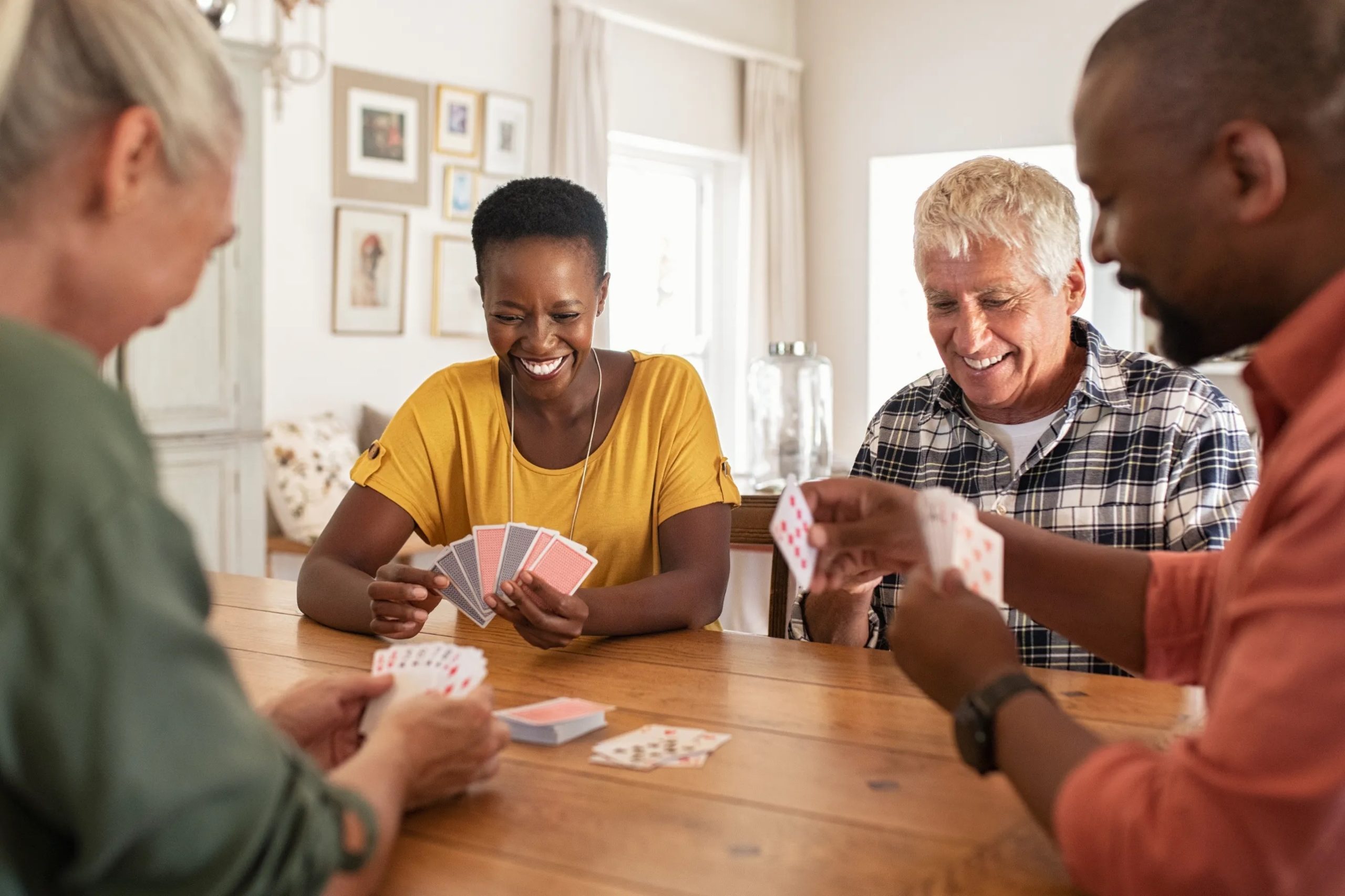Blog
Cognitive Exercises to Keep the Mind Sharp in Old Age

As we age, maintaining mental sharpness is just as important as preserving physical health. While it’s normal for the brain to change over time, cognitive decline doesn’t have to be a given. In fact, research shows that staying mentally active can improve memory, enhance focus, and reduce the risk of dementia and other age-related cognitive conditions.
The good news is that keeping the brain healthy doesn’t require complicated routines or expensive tools. With the right mix of activities, seniors can stimulate their minds, enjoy learning, and maintain confidence in their cognitive abilities, right from the comfort of home.
At Home Care, Inc., we understand that a healthy brain contributes to overall well-being. In this article, we’ll explore practical cognitive exercises that help older adults stay mentally sharp, engaged, and empowered.
Why Cognitive Health Matters for Seniors
Cognitive health refers to the ability to think, learn, and remember. As people age, some decline in these functions is natural, but lifestyle choices play a major role in how quickly or significantly those changes occur.
Benefits of maintaining cognitive health include:
- Enhanced memory and mental clarity
- Improved problem-solving and reasoning skills
- Greater independence in daily life
- Better emotional regulation and mood
- Reduced risk of Alzheimer’s disease and other dementias
The brain, like any other muscle, stays stronger when it’s challenged and used regularly.
Best Cognitive Exercises for Seniors
Here are simple, enjoyable, and effective exercises that can help older adults maintain and even improve brain function:
-
Puzzles and Brain Games
Solving puzzles is one of the most effective ways to keep the brain engaged.
- Crosswords boost language and memory skills.
- Sudoku and number puzzles sharpen logical thinking.
- Jigsaw puzzles improve spatial awareness and problem-solving.
- Memory matching games strengthen short-term recall.
Tip: Choose puzzles with varying levels of difficulty to keep the mind consistently challenged without causing frustration.
-
Reading and Storytelling
Reading is a simple yet powerful way to stimulate the mind.
- Read books, magazines, or newspapers daily.
- Listen to audiobooks or podcasts for variety.
- Encourage discussions or join a local or virtual book club.
- Write down personal stories or journal memories to stimulate long-term recall.
Storytelling not only engages the brain but also brings joy and emotional connection.
-
Learning Something New
Challenging the brain with new information or skills creates new neural pathways.
- Learn a new language, even just basic vocabulary.
- Take up a musical instrument or art technique.
- Try cooking a new recipe or using a new device.
- Join an online course or educational app designed for seniors.
Lifelong learning keeps the brain adaptable and engaged.
-
Games That Promote Focus and Strategy
Playing games that require strategy and attention is another enjoyable form of cognitive exercise.
- Card games like bridge, solitaire, or gin rummy
- Board games like chess, checkers, or Scrabble
- Trivia quizzes that test general knowledge
- Bingo and similar games that require quick recognition
These activities combine mental focus with social interaction, two powerful elements for brain health.
-
Engaging in Creative Activities
Creative expression supports cognitive flexibility and emotional well-being.
- Painting, drawing, or coloring
- Scrapbooking or organizing photo albums
- Crafting with clay, yarn, or beads
- Writing poetry, songs, or letters to family
Creative tasks challenge memory, planning, and fine motor skills, all while boosting mood.
-
Physical Exercise with Mental Focus
Physical movement boosts brain health by improving blood flow and reducing stress. Combine exercise with mental activity for added benefits:
- Dance routines that require learning steps
- Yoga or tai chi that includes focused breathing and balance
- Walking while identifying nature or reciting affirmations
- Simple balance games or guided movement challenges
Bonus: Regular physical activity also improves sleep, mood, and overall brain function.
-
Technology-Assisted Brain Training
Many apps and online platforms offer brain games specifically designed to boost memory, attention, and processing speed. Some popular options include:
- Lumosity
- Elevate
- Peak
- CogniFit
Caregivers can help set up and guide seniors through these digital tools, making learning fun and accessible.
Tips for Caregivers: Supporting Cognitive Health at Home
Family members and caregivers play a key role in promoting cognitive well-being.
- Encourage a daily mental activity routine
- Be patient and make activities enjoyable, not stressful
- Adjust tasks to match the senior’s ability level
- Celebrate progress and participation, not perfection
- Combine mental and social activities when possible
At Home Care, Inc., our caregivers are trained to incorporate cognitive exercises and brain-stimulating activities into each care plan. From games and conversation to creative engagement, we help clients keep their minds active in ways that are comfortable and enjoyable.
Final Thoughts: Mental Strength at Every Age
Aging may bring change, but it doesn’t have to mean cognitive decline. With regular brain stimulation, emotional encouragement, and personalized care, seniors can stay sharp, curious, and engaged well into their golden years.
If you or a loved one could benefit from in-home care that supports cognitive and emotional health, contact Home Care, Inc. today at (601) 437-3524 or visit our website. Let us help you create a care plan that keeps the mind strong and the spirit inspired, every day.
